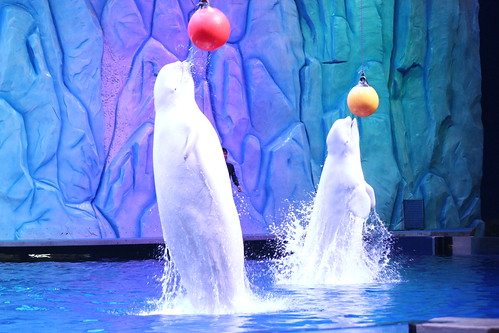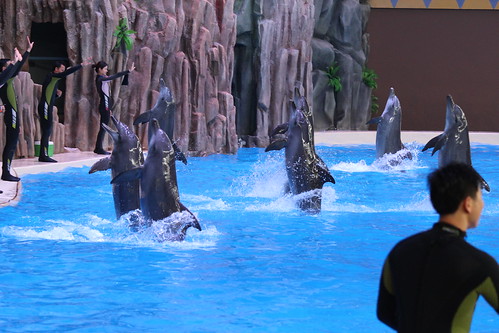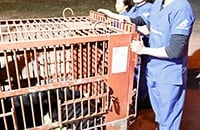Opposition voiced within China to new orca breeding programme
07 March 2017
A Chinese ocean park’s new orca breeding programme has been criticised by animal welfare groups in China concerned about the welfare and safety of animals and trainers.
On February 24, China’s Chimelong Ocean Kingdom announced that it was beginning an orca breeding programme – the first in the country’s history – using nine orcas from Russian waters.
In response, Chinese animal welfare organisations have joined forces to criticise the move.
They claim the orcas are being fed unsuitable diets, kept in unsuitable social groups, are at risk of inbreeding and are already suffering from medical problems.
The charities released their concern through the China Cetacean Alliance (CCA), a coalition of animal protection and conservation organisations.
Chimelong’s decision is at odds with western moves away from performances and breeding programmes featuring captive cetaceans such as dolphins and orcas.
In the west, the high profile deaths of animal trainers at SeaWorld facilities and the success of the film Blackfish has convinced many that such animals cannot be held in captivity without severely affecting their welfare and the safety of their trainers.
However, in China, the industry is expanding, creating a new market both for Russian poachers and for western investors and entertainment conglomerates affected by the shrinking market at home.
China is now home to 44 operational ocean parks with a further 19 under construction and due to open in the next two years – at a rate of nearly a facility per month.
As a result of the rapid expansion, however, domestic opposition to the industry is growing. A 5-minute film released online last month by the CCA was watched almost 20 million times in just a matter of weeks, helping convince potential customers that the industry has no long-term future.
Animals Asia’s Animal Welfare Director Dave Neale said:
“The response from the local and international community has been unanimous on this issue. The industry may still be new to China but we know how this ends. Animal welfare awareness is growing and in time Asia will move on. Over and above the cruelty involved, this represents a poor investment by all involved. This is not an industry with a future. ”
Alongside concern for the orcas, CCA also raised concerns for their trainers saying:
“Regarding trainer safety, we repeat again that these are mammal-eating orcas. Their reactions to the trainers, especially if one should accidentally fall into the water, could easily revert to hunting behavior.”
While no orca has ever been known to eat a human, trainers have been killed by orcas at western facilities.
The CCA statement ends:
“The welfare of these nine whales is threatened by the conditions under which they are being held and the safety of the trainers is at significant risk.”
You can read the full statement here.
BACK







 5 reasons the dog meat trade must end
5 reasons the dog meat trade must end
 New year, new home for Christmas the Bear!
New year, new home for Christmas the Bear!
 Veterinary welfare training – pain management
Veterinary welfare training – pain management